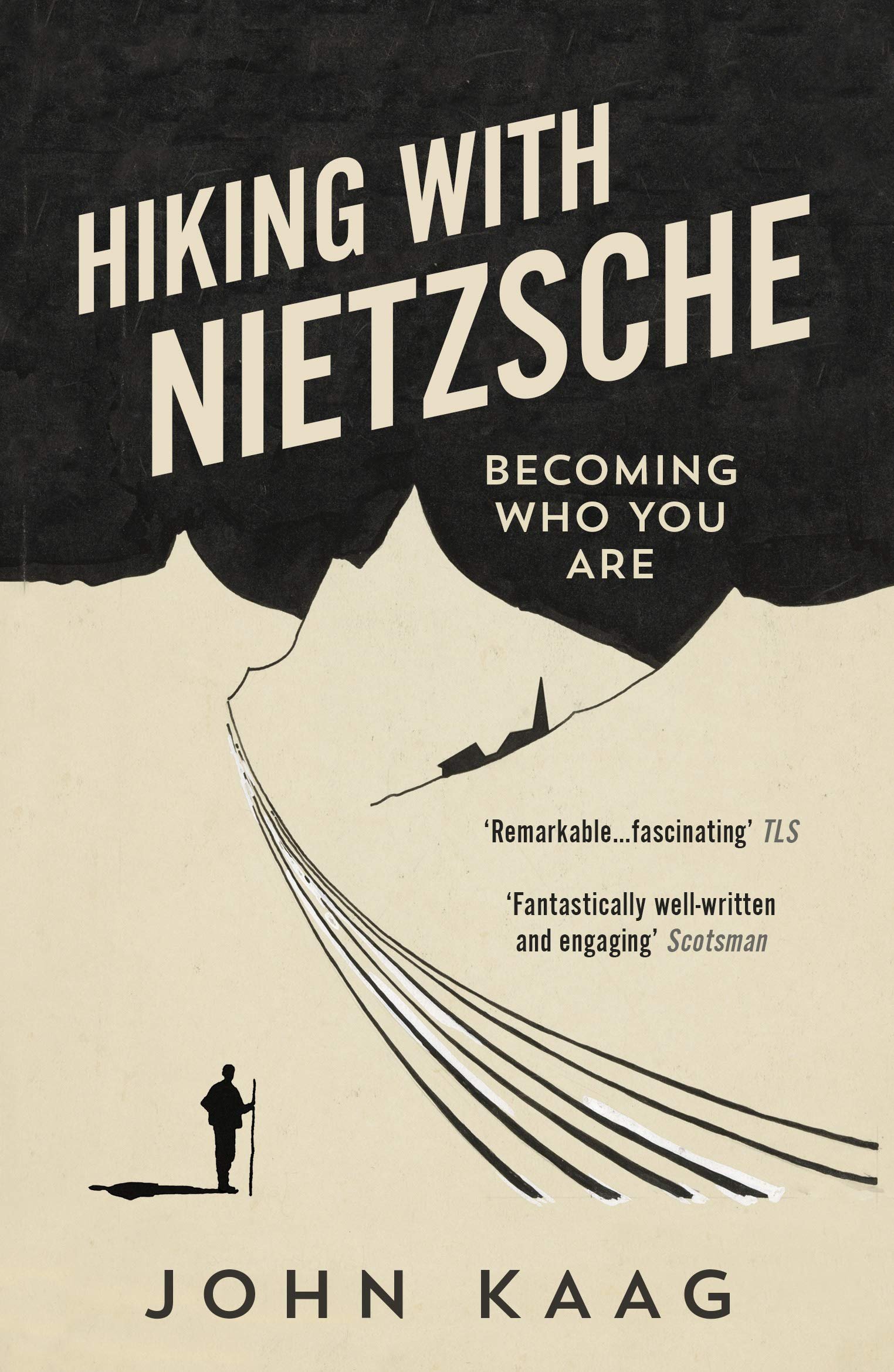How Can Nietzsche Save Your Life with professor John Kaag
Hiking with Nietzsche is a tale of two philosophical journeys in the Swiss Alps: one made by John Kaag as an introspective teenager, the other seventeen years later in radically different circumstances - as a husband and father with his wife and small child in tow.
Kaag travels to the peaks above Sils Maria where Nietzsche routinely summered, and where he wrote his mysterious landmark work, Thus Spoke Zarathustra. Both trips are made in search of the wisdom at the core of Nietzsche's philosophy, yet they bring Kaag to radically different revelations about the human condition. Entertaining, intimate and thought-provoking, Hiking with Nietzsche explores not only Nietzsche's ideals but how his philosophy relates to us in the 21st century. (From the back of the book)
I was often asked 'Where to start reading Nietzsche?'. It is a hard question to answer, because each person has "their own" Nietzsche. Professor Kaag spent decades of his life studying and teaching philosophy of the famous philosopher. I believe his book is a perfect introduction to Nietzsche, because it combines three key elements: first of all it tells about N's key ideas; secondly it tells about the philosopher's hard life; and then it applies N's ideas to our own time, making it more tangible and applicable to us.
John Kaag’s Books
📰 Great Articles by Professor Kaag
The Dreadful Dads: Few of the great existentialists had children. How can their philosophy help with the anxiety and dread of fatherhood? (READ)
The greatest use of life: The pragmatist philosopher William James had a crisp and consistent response when asked if life was worth living: maybe (READ)
Why the demoniac stayed in his comfortable corner of hell (READ)
A great article on The Atlantic about John Kaag’s book (READ)
📝 Notes
3 Favourite Quotes:
Free spirit, self-conqueror, non-conformist - Nietzsche’s existential hero terrifies and inspires in equal measure.
The questions that scare us the most are precisely the ones that deserve our full and immediate attention.
‘What was once done ‘for the love of God’ is now done for the love of money’ Nietzsche
3 Great Books Mentioned:
Emerson’s essays ‘Experience’, ‘Compensation’
Diogenes Laertius, ‘Lives of Eminent Philosophers’
Arthur Schopenhauer, ‘The World as Will and Idea’, ‘Studies in Pessimism’
2 Great ideas I keep thinking about:
Kaag points out that many great philosophical ideas and thoughts came to famous thinkers while they walked: Buddha, Socrates, Aristotle, the Stoics, Jesus, Kant, Rousseau, Thoreau - these thinkers were never still for long. Great thoughts come while we are in the move, we are in transit, now when we are still’ I added this passage into my notebook, to remind myself about this enriching activity.
The hardest part of Nietzsche life (among many things) was his struggle to preserve the individualism, while interacting with society. That’s what he explores in his Zarathustra. Zarathustra, who is a hermit, has to come down to people, since he seeks companionship.



